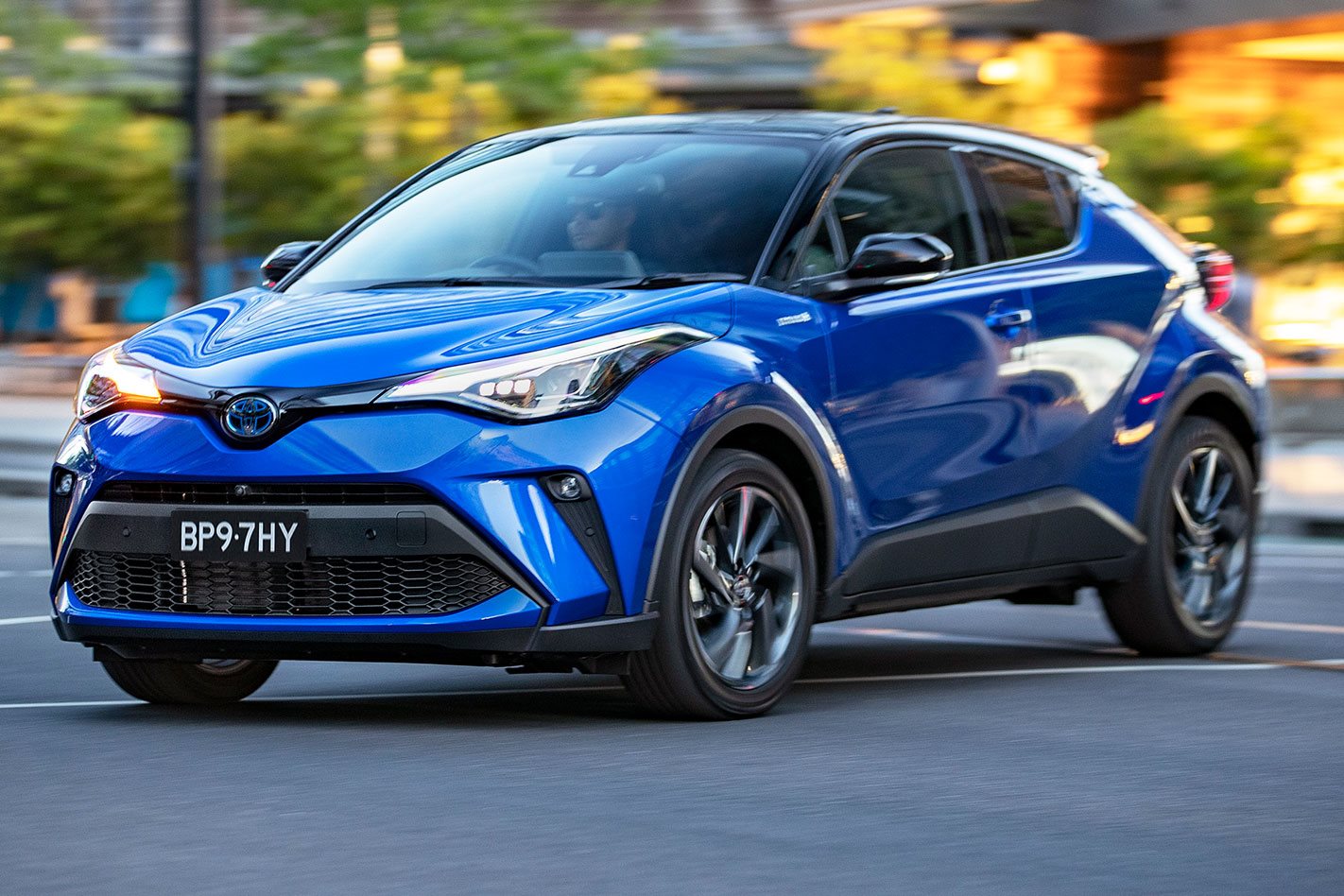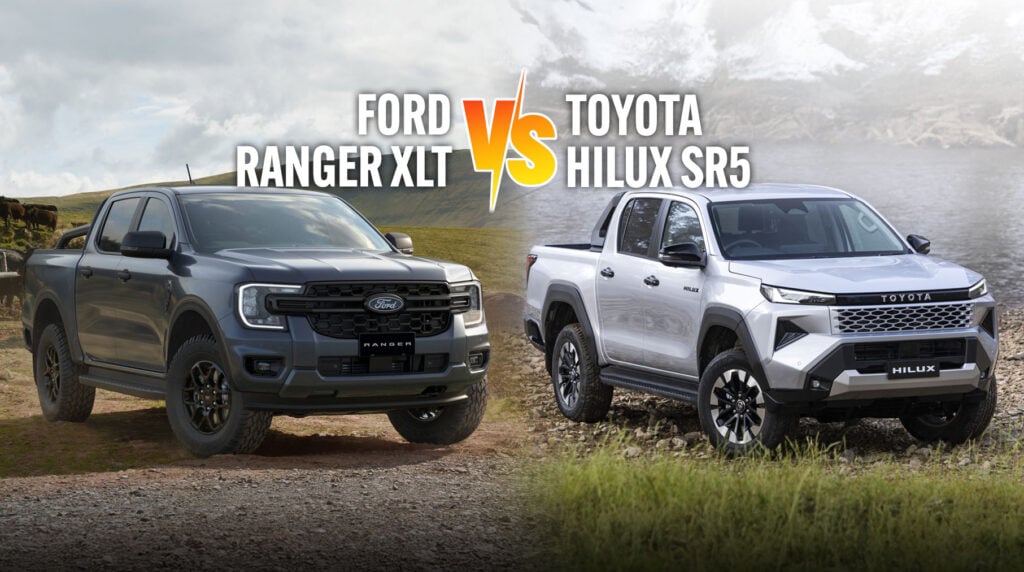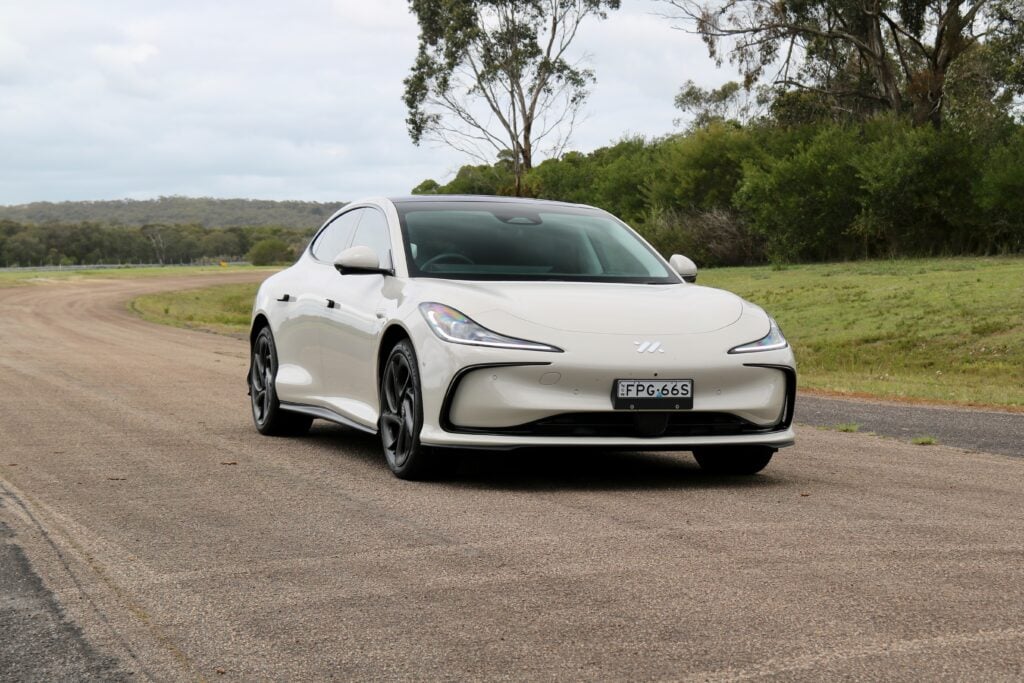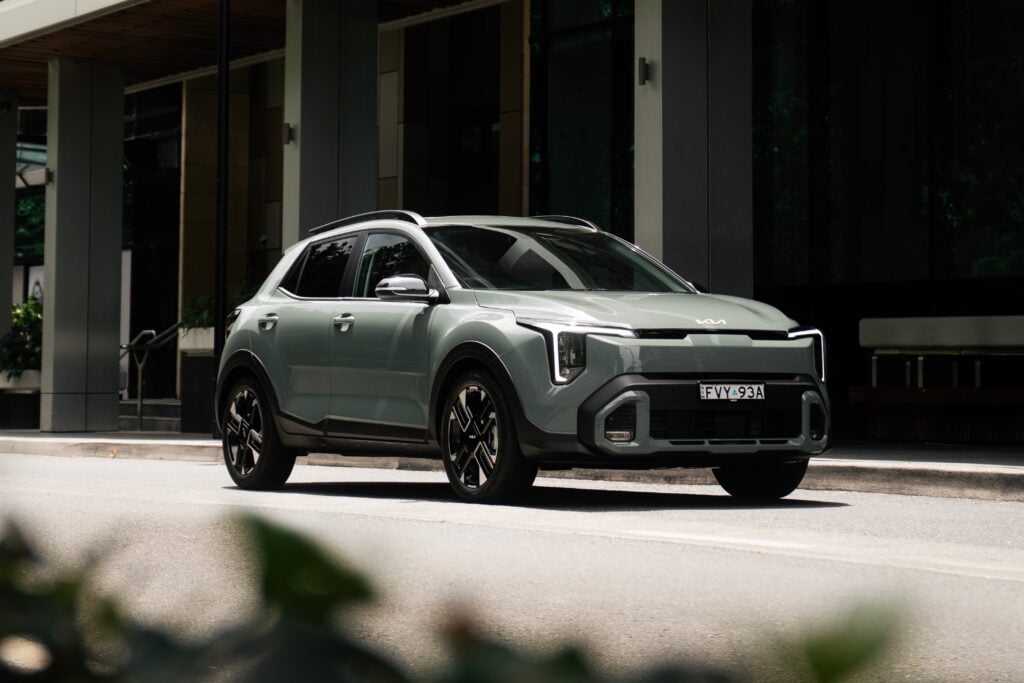Things we like
- Hybrid frugality
- Upmarket cabin
- Keen ride and handling
Not so much
- Only available with top-spec Koba
- Compromised rear-seat vision
- Price
The Wheels Verdict: Despite more people opting for the higher-grade Koba, it’s a shame that the hybrid powertrain hasn’t filtered down to the lower C-HR ranks. Its lofty price tag puts it out of reach for some. Which is a shame, because those who can afford the $36,440 ask receive a thoroughly sorted compact SUV with the added benefit of increased performance and frugality. Gains in both of those categories are hard to come by.
WHAT IS IT?
It’s the accomplished Toyota C-HR we know and love, just with a petrol-electric powertrain, tweaked styling and, at long last, Apple CarPlay and Android Auto.
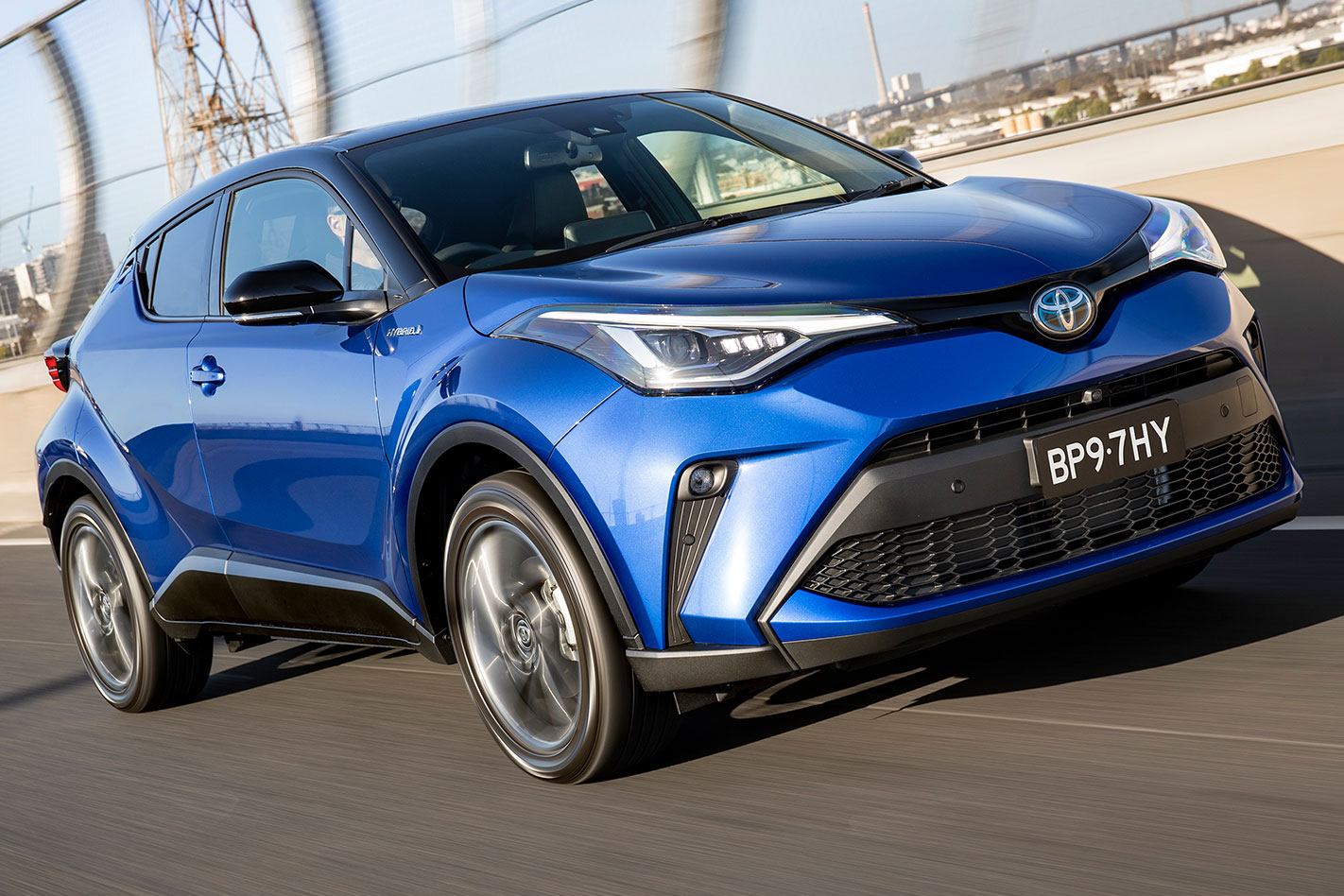
WHY WE’RE TESTING IT
The C-HR has long been a favourite in the Wheels office. However, now that Toyota has fixed a major infotainment gripe and added its esteemed hybrid technology, we’re keen to find out if the top-spec petrol-electric C-HR is the package to buy.
2020 TOYOTA C-HR KOBA HYBRID REVIEW
It’s ironic that Toyota chose to launch the Corolla sedan and the refreshed C-HR at the same event. The former represents the Japanese marque’s traditional staple of unassuming competence, a formula the ubiquitous car maker has built its empire on, while the latter couldn’t break that mould more if it tried. Style driven, some might even say funky, and unashamedly aimed towards a younger, ‘hip’ audience… the C-HR is certainly a change of tack.
Now, after its 2017 release, the quirky Compact High Rider/Cross Hatch Run-about (or C-HR) has been given a refresh and a hybrid heart transplant, but only for the top-spec Koba. The exterior styling has received a nip and tuck, but apart from the petrol-electric addition, it’s the fitment of Apple CarPlay and Android Auto that will excite. Especially given it’s displayed on a high-set 8.0-inch colour touchscreen. Finally, Toyota is getting ‘down with the kids’.
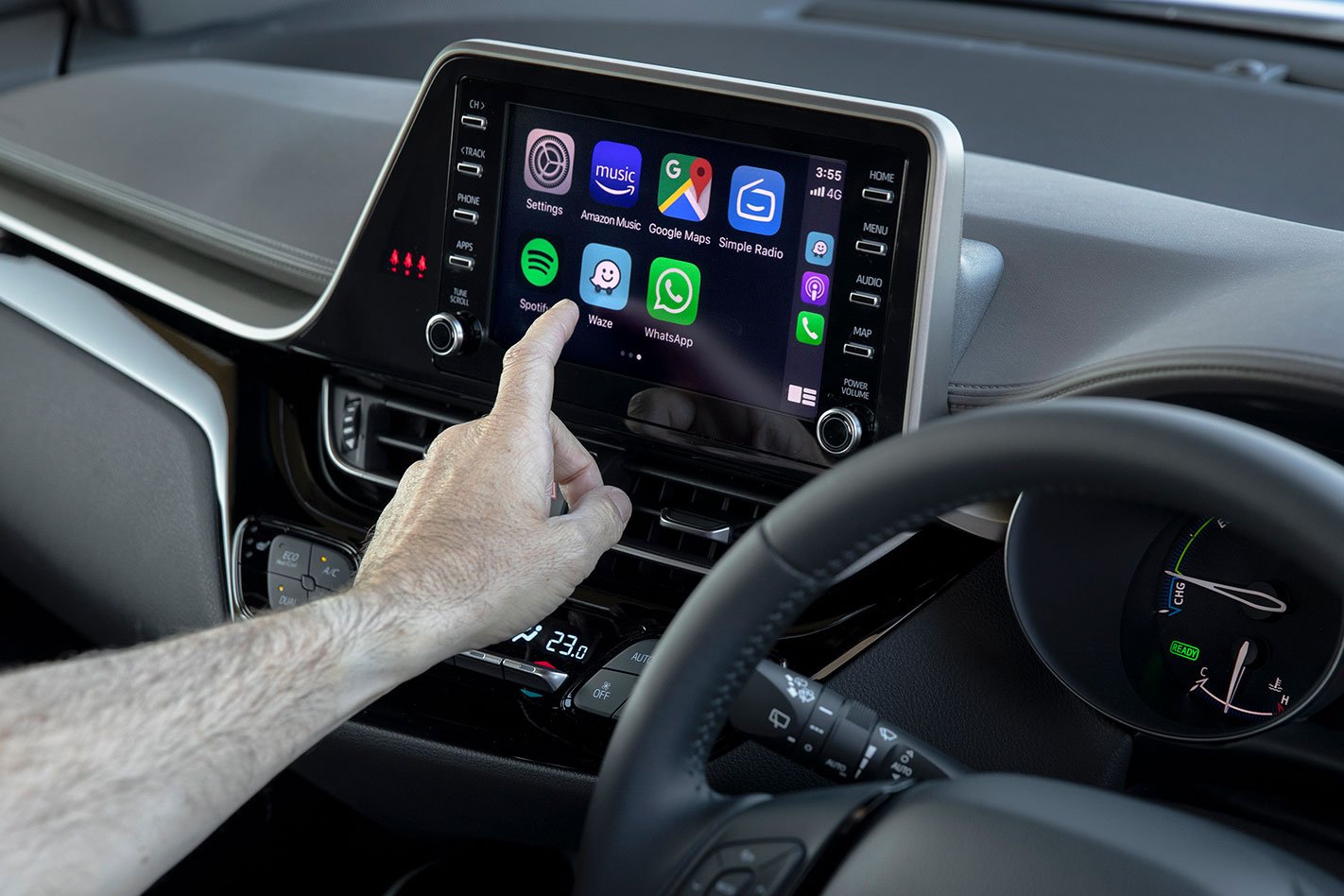
A stumbling block could be price. Toyota is only offering the frugal powertrain in the Koba, which already has an asking price of $33,940. It costs a further $2500 to add a hybrid badge to the angular C-HR’s rump. With a sticker of $36,440, any Gen Y or millennial buyers will require somewhat deep pockets.
Standard safety is high, with the C-HR receiving AEB with pedestrian detection, active cruise control, lane-departure alert with steering assist, blindspot monitoring with rear cross-traffic alert, front and rear parking sensors, auto high-beam assist and ISOFIX points.
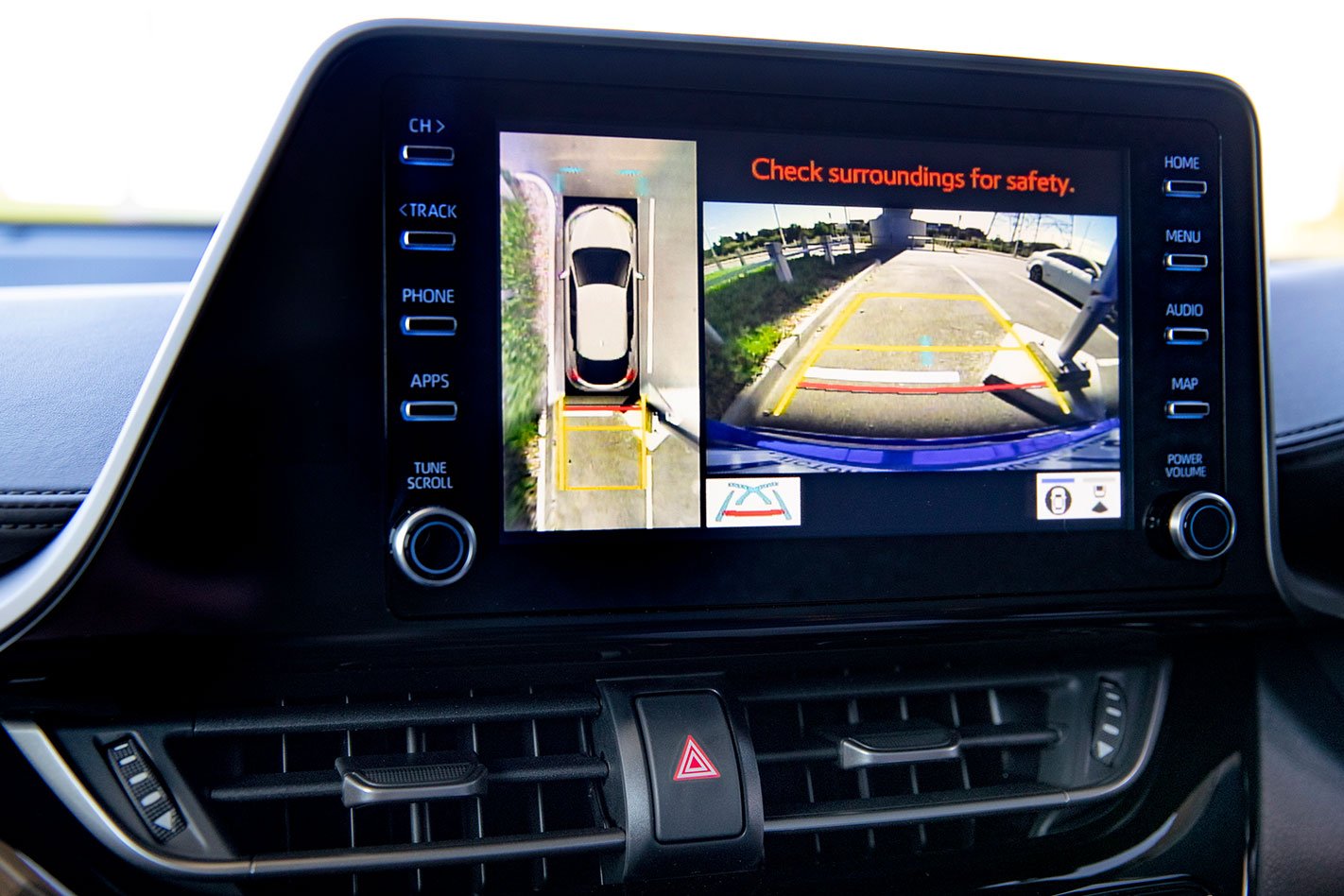
Inside, the Koba Hybrid looks and feels its price – which, refreshingly is something being said more often when referencing current Toyotas. The dash is covered in premium materials and there is a feeling of solidity from within. The steering wheel is a particular highlight in hand. The graphics are a little dated all round, but connect your smartphone and activate Apple CarPlay or Android Auto and the experience becomes more acceptable. The climate controls are easy to use and everything is logically laid out.
In terms of goodies, the C-HR gains dual-zone climate control, electronic park brake, auto wipers, satellite navigation, voice recognition and of course, smartphone mirroring. The Koba adds leather, heated seats (with power lumbar support for the driver) keyless entry and start as well as bigger 18-inch wheels.
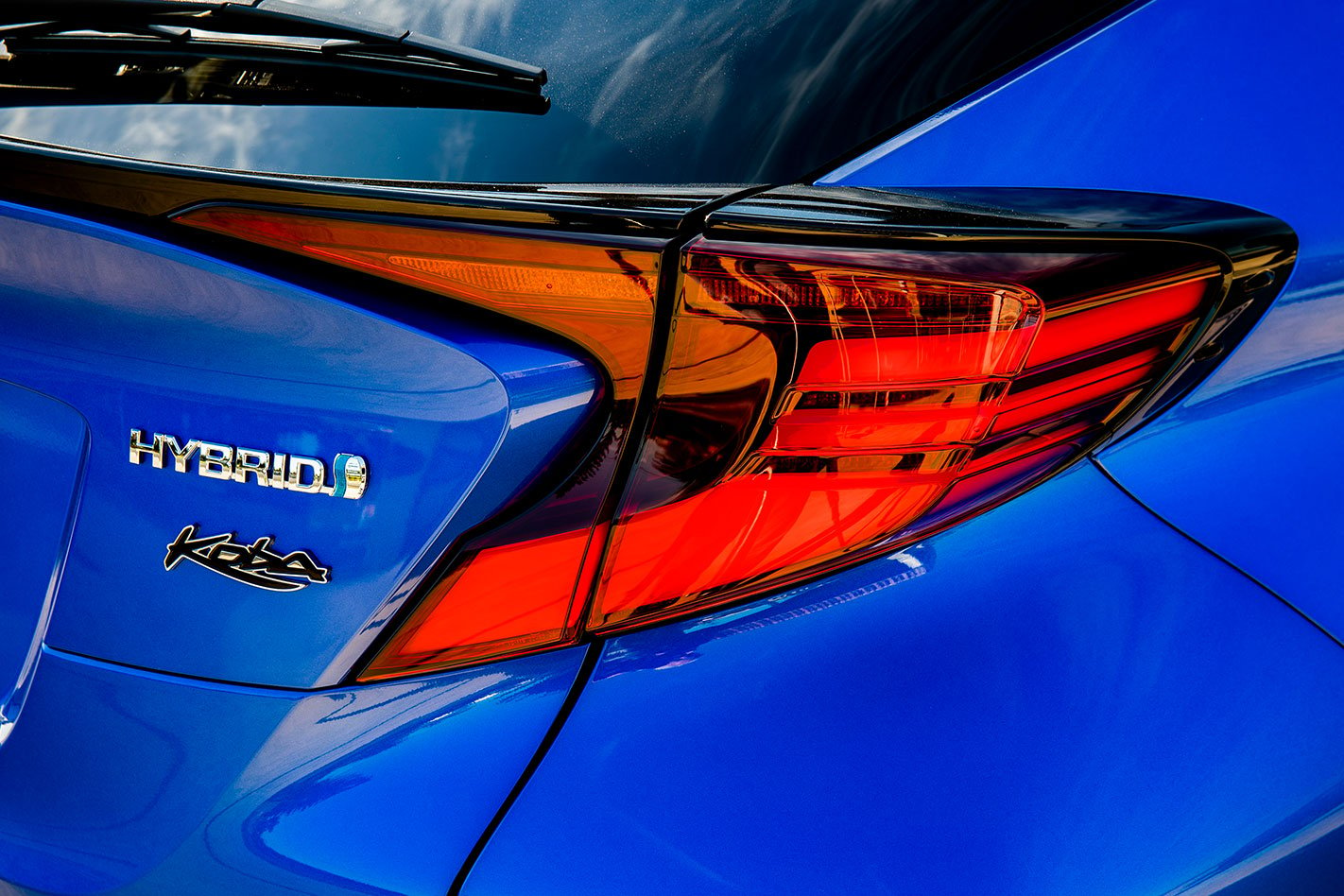
Where the C-HR begins to falter is in terms of practicality. The rear seat is dark, with a high waistline resulting in small rear windows and limited outward vision – luckily the windows open all the way to the bottom and the door apertures are wide. Granted there is more head and legroom than expected, but something like Honda’s HR-V offers abundantly more of both. The boot is decent, although not class leading, at 318 litres, and there are no rear air vents.
Under the bonnet is the same 1.8-litre Atkinson cycle four-cylinder petrol engine, which is tied to an AC synchronous, permanent magnet electric motor. Combine the two and the hybrid powertrain produces 90kW and 142Nm. The performance feels slightly punchier than the conventional 1.2-litre turbo found in other variants, yet the combined fuel consumption drops to 4.3L/100km from the 6.4L/100km of the two-wheel-drive petrol.
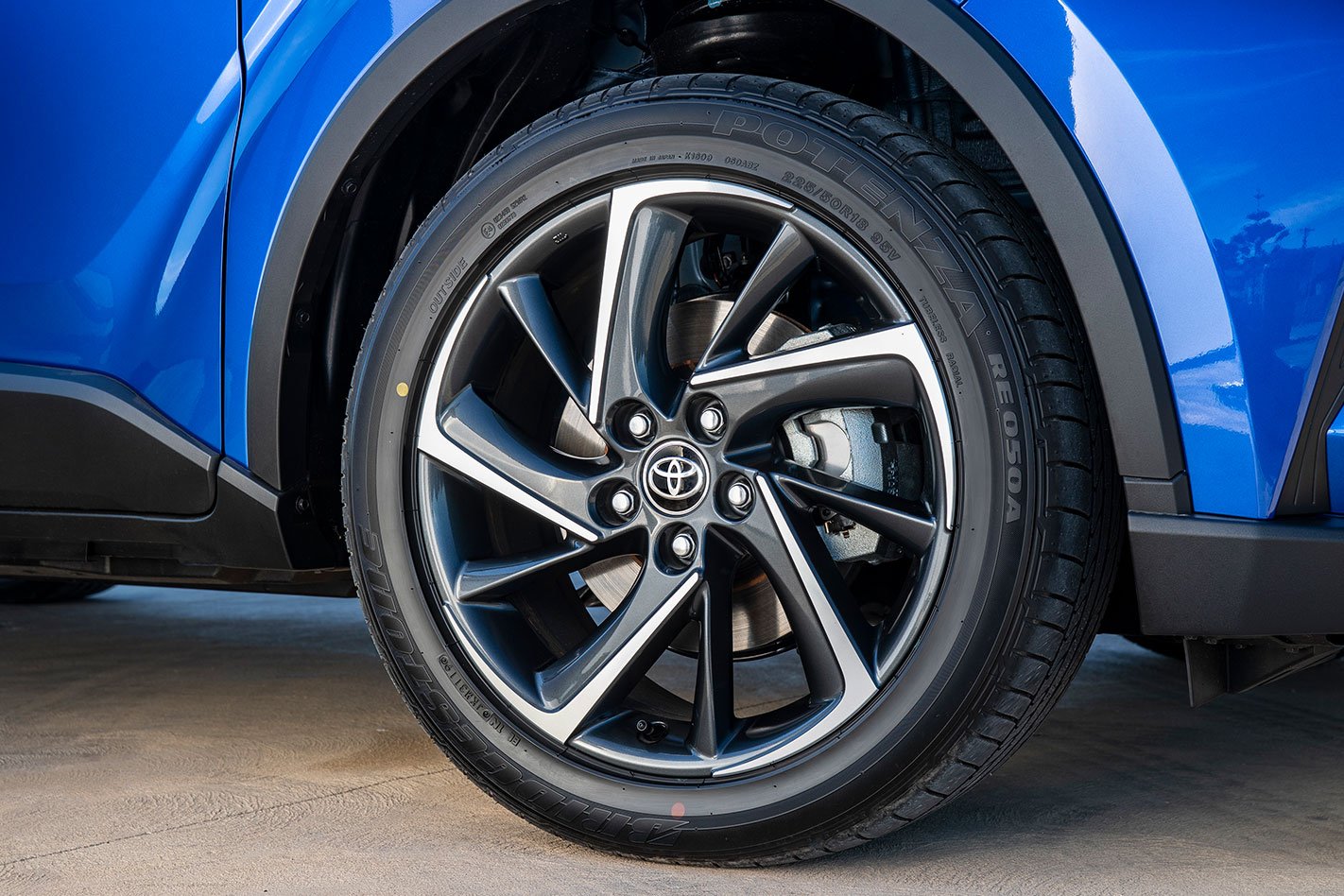
On-road, the nickel-metal hydride battery pack is recharged on the fly with help from the relatively unobtrusive regenerative braking. Crawling through the city is where the Koba Hybrid achieves its best economy as it encourages the use of the electric motor for drive. At higher speeds, the petrol four-cylinder takes over and, paired to a stepped-ratio CVT, progress is swift enough for a 1420kg SUV.
The hybrid displays confidence-inspiring and engaging dynamics – it’s one of a few compact SUVs where you might want Google to find you the windy way home. The ride quality is firm but controlled, with all types of surfaces handled with aplomb. The steering has tangible weight and the feedback through the wheel is reassuring. The Koba Hybrid is two-wheel drive only, but with just 137mm of ground clearance, going off-road isn’t ideal. The only other blot in the copybook is road noise.
Ultimately, the hybrid makes an already accomplished package even better. Toyota says it’ll investigate the viability of bringing in lower-spec C-HR hybrids if there’s a demand – so start requesting one if that’s your ‘jam’. Either way, the update has addressed a key failing of Toyota’s smallest SUV while adding the benefits of its hybrid tech. That’s clever forward thinking.
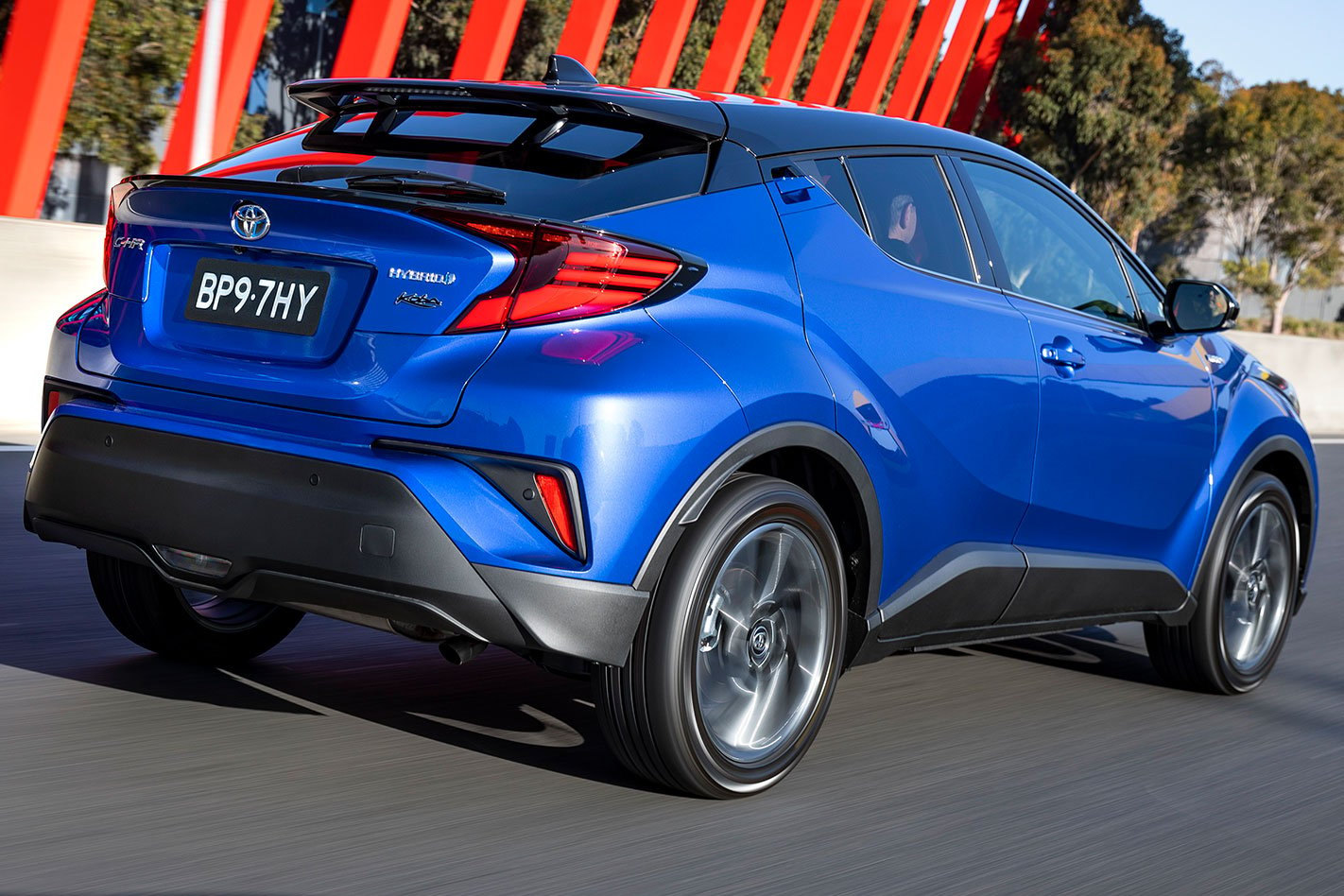
PRICE AND SPECS
- Model: Toyota C-HR Koba Hybrid
- Engine: 1798cc 4cyl, dohc, 16v
- Electric motor: AC synchronous, permanent magnet
- Power: 90kW (combined)
- Torque: 142Nm (combined)
- Transmission: CVT
- Weight: 1420kg
- 0-100km/h: 10.5 seconds (estimated)
- Economy: 4.3L/100km
- Price: $36,440
- On sale: Now
Things we like
- Hybrid frugality
- Upmarket cabin
- Keen ride and handling
Not so much
- Only available with top-spec Koba
- Compromised rear-seat vision
- Price


